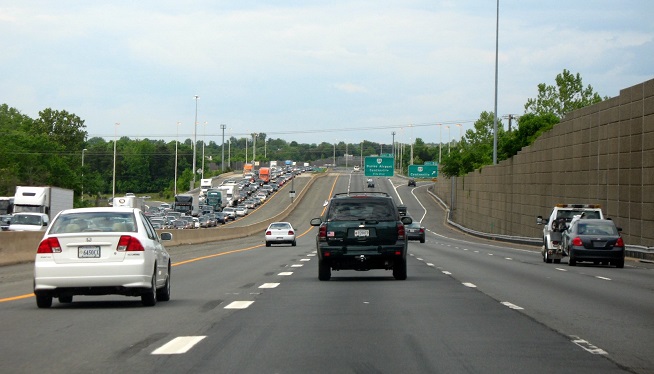Steve Burns
WMAL.com
RICHMOND — (WMAL) After months of political bickering, Virginia Governor Terry McAuliffe and lawmakers today announced a compromise plan to toll Interstate 66 inside the Beltway while also adding one new lane.
The original plan called for adding a toll for solo drivers during rush hour in the peak direction starting in 2017 with no new lanes, then see how that combined with transit improvements impacted traffic flow in deciding if a new lane was necessary. Instead, the state will get to work now on adding the lane.
“This is a comprehensive plan to deal with, as I say, probably the most congested road in the most congested region in the country,” McAuliffe said at a press conference Wednesday. “We have waited for 30 years for improvements on I-66, and now together in a bipartisan way we now have an action plan that will commence immediately, and this should all be completed by 2020.”
The compromise leaves the plan to add tolls in 2017 intact, but will commence studying and building the new lane soon afterwards instead of taking a wait-and-see approach. The lane would be built in the eastbound direction, from the Dulles Connector to the Fairfax Drive exit in Ballston. Lawmakers agreed to kill bills pending in the General Assembly that would have derailed the Governor’s plan.
Arlington County has fought for decades against any widening the highway, which County Board Chair Libby Garvey called “a gash through the heart of the county” in an interview with WMAL.
“We would prefer not to have a lot of construction done here in Arlington at the moment and try some other things first, but that’s not happening, so we’re going to move forward,” she said. “We’ve been assured that the widening of I-66 will be done in the existing right of way, and we’ll be strengthening sound barriers to mitigate the harm,” though she said the Virginia Department of Transportation hasn’t kept all of its promises to the County in the past so “we’ll be watching this very, very diligently.”
She indicated the county may look at ways of “knitting the community back together,” and proposed building parks over the highway.
Toll revenue would still be contributed to enhancing mass transit options through the corridor, which the Coalition for Smarter Growth’s Stewart Schwartz called “the most important thing we can do to in crowded metropolitan areas to keep our economy humming and keep people connected to jobs.”
He indicated the compressed timeline may not give commuters enough time to explore options other than driving.
“The idea that we can widen our way out of this doesn’t hold up, because we certainly will have induced demand where the new lanes will fill up,” Schwartz told WMAL. “Increasingly you’ll be taking people’s homes, harming their neighborhoods, taking parks and school grounds, adding air pollution.”
Copyright 2016 by WMAL.com. All Rights Reserved. (PHOTO: Wikimedia Commons)






















